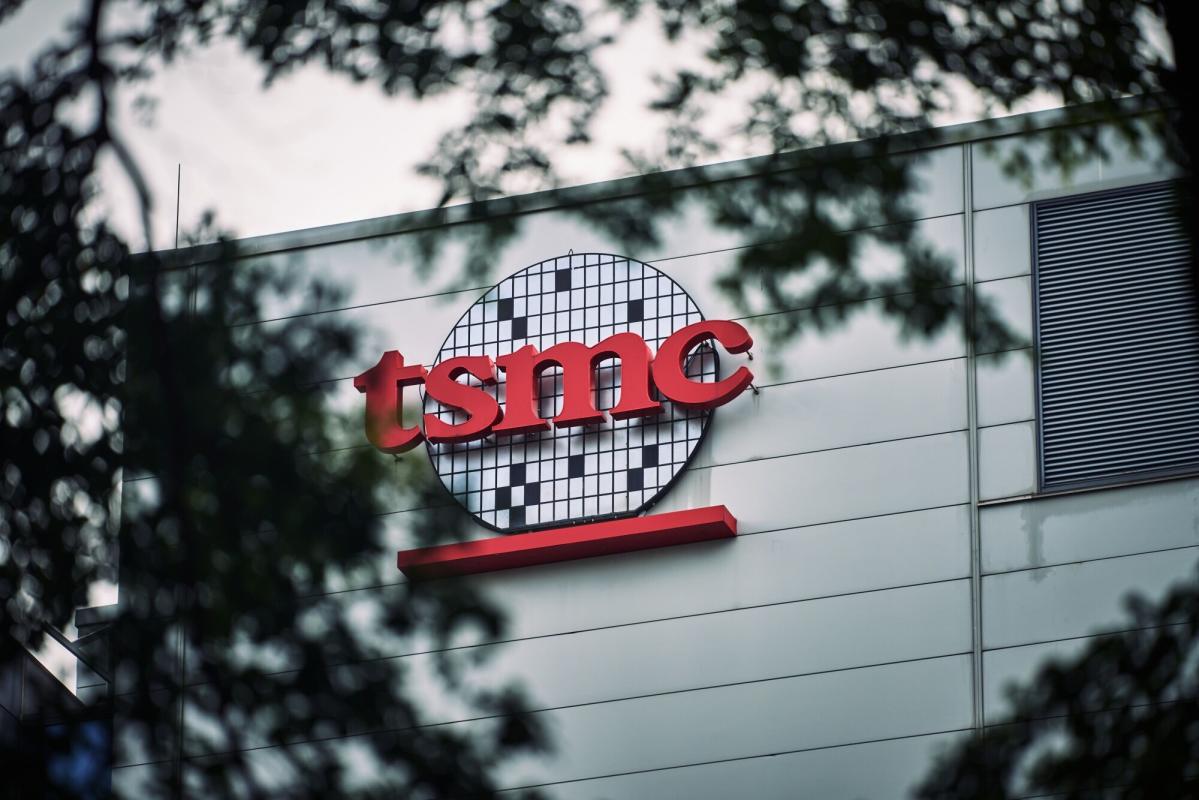
(Bloomberg) — Taiwan Semiconductor Manufacturing Co. posted a better-than-expected 39% rise in quarterly revenue, easing concerns that spending on AI hardware is starting to slow.
Bloomberg’s Most Read
The top chipmaker of Nvidia Corp. and Apple Inc. reported September quarter sales of NT$759.7 billion ($23.6 billion), versus the average forecast of NT$748 billion. Taiwan’s largest company will announce its full results next Thursday.
The better-than-expected performance may bolster the view of investors who are betting that AI spending will remain high as companies and governments compete to gain an advantage in the emerging technology. Others warn that companies like Meta Platforms Inc. and Alphabet Inc.’s Google cannot maintain their current pace of infrastructure spending without a compelling, monetizable AI use case.
Hsinchu-based TSMC is one of the key companies at the center of the global surge in spending on AI development, producing the next-generation chips needed to train artificial intelligence. Its sales have more than doubled since 2020, and the pivotal launch of ChatGPT sparked a rush to acquire Nvidia hardware for AI server farms.
Nvidia shares rose about 1.1% in premarket trading in New York on Wednesday, while U.S.-traded TSMC ADRs rose a more modest 0.4%.
TSMC shares have more than doubled since the launch of ChatGPT, and its market cap briefly surpassed the $1 trillion mark in July. That month, Taiwan’s largest company also raised its 2024 revenue growth outlook after quarterly results beat estimates.
However, in recent months, opinions have begun to diverge on whether the AI-powered growth momentum will last. That skepticism has led to a pullback in AI stocks, including standard-bearer Nvidia, earlier this year.
TSMC’s view is that AI spending will remain high despite rising trade tensions between the United States and China. In both countries, startups and tech companies, from Microsoft Corp. to Baidu Inc., are splurging on artificial intelligence infrastructure in a race to develop applications.
Hon Hai Precision Industry Co., Nvidia’s key server assembly partner, earlier this week also reaffirmed that demand for AI hardware remains strong. Hon Hai President Young Liu told Bloomberg TV on Tuesday that his company plans to increase server production capacity to meet the “crazy” demand for next-generation Blackwell chips, echoing similar comments from Nvidia CEO , Jensen Huang, earlier this month.
But analysts are concerned that delays in delivery of Nvidia’s latest Blackwell chips could disrupt the industry, although most investors don’t see that as a long-term problem for TSMC. As Intel Corp. and Samsung Electronics Co. struggle to get ahead in the custom chip manufacturing business, TSMC’s market leadership is expected to help shore up margins.
What Bloomberg Intelligence Says
While Apple’s A18 chip orders may decline due to weak demand for new iPhone 16s, strong orders from Nvidia and Intel are likely to offset any TSMC revenue shortfalls. Other key topics include the potential for mass production of 2-nanometer (N2) nodes and plans to expand its advanced chip-on-wafer-on-substrate (CoWoS) packaging capacity in 2025.
-Charles Shum, analyst
Click here for research.
TSMC now derives more than half of its revenue from high-performance computing, the segment of its business driven by AI demand. It also remains the sole maker of the iPhone’s processor, although a growing number of analysts have expressed concern about worse-than-expected demand for the new iPhone 16 range.
(Updates with stock reaction on)
Most Read Bloomberg Businessweek
©2024 Bloomberg LP
